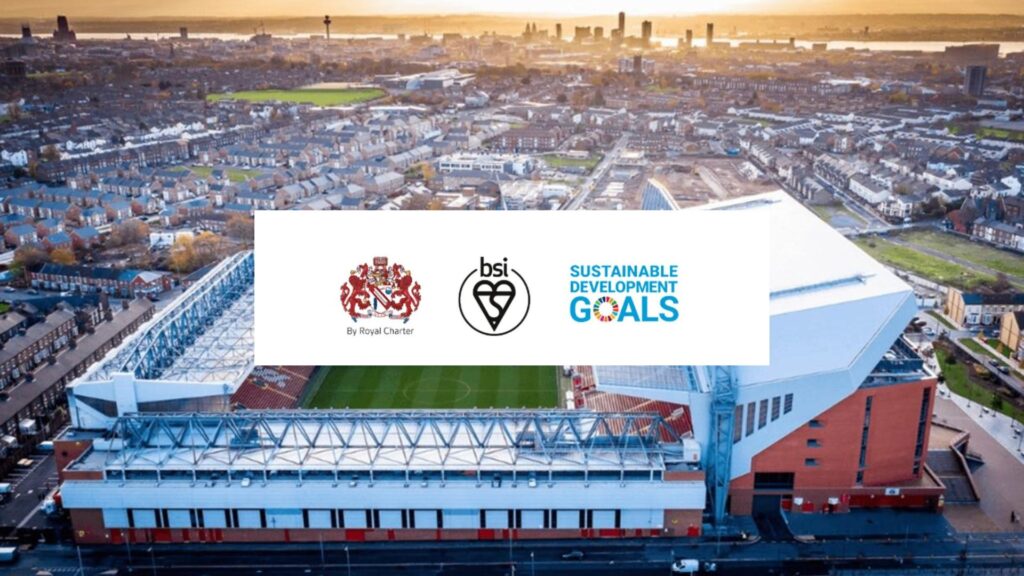BSI Revamps Event Sustainability Guidance: Focus on Climate, Supply Chain, and Social Impact

Updated guidance designed to help the events industry to embed sustainable practices and address emerging challenges across climate change, supply chain and social impact, has been published by BSI, more than a decade after the original framework was released for London 2012.
Event sustainability management systems – Requirements with guidance for use (BS ISO 20121:2024) provides a robust framework for sustainable event management. It is designed to ensure occasions ranging from COP climate conferences to sporting fixtures are conducted with a consideration for sustainability at every step to ensure negative impacts are minimized and positive impacts are maximized. Revisions to the standard have been made to address emerging issues on climate change, legacy, supply chain measures and human and child rights areas. These include:
- An increased focus on the supply chain demonstrating sustainability.
- Requirements to consider the impact of specific issues including climate change when considering the context of the organization.
- An extended list of issues which can be identified and evaluated including human and child rights and social impacts.
- Additional examples of interested parties to be engaged with, including partners and sponsors.
- New commitments including reporting on achievements, lessons learnt and, where appropriate, legacy.
BSI, in its role as the National Standards Body, has published these revisions to reflect the evolving development and importance of key considerations such as reducing carbon emissions, promoting fair labour practices, and ensuring ethical sourcing throughout the supply chain. The updated standard, which includes hybrid and virtual events, also aligns with global sustainability frameworks, goals & reporting standards such as the United Nations Sustainability Development Goals, Race to Zero and The Paris Agreement on Climate Change 2015, making it more relevant to the customer demands being faced by the event sector.
The earlier iteration, BS ISO 20121, was published in 2012 ahead of its use for the London Olympics and Paralympics. It has since been used by organizations ranging from COP28 to the G7, Liverpool Football Club and Edgbaston Cricket Stadium, as well as Small to Medium Enterprises (SMEs) within the events supply chain. It was designed to help organizations improve their sustainability throughout the entire event management cycle, and across each step of the supply chain. whether for a conference, entertainment event or sports tournament.
Since its initial launch the standard has provided a framework for organizations to manage the social, economic, and environmental impacts of their events and to improve their sustainability performance and transparency. It has been adaptable to organizations’ unique ambitions and scope. The updated version aims to support the events sector to take best practice action to meet growing business, government, and consumer sustainability expectations.
A further focus is to make the standard more user friendly for SMEs that make up the majority of the event supply chain. BSI’s 2023 Net Zero Barometer report where nearly two-thirds (63%) of SMEs cited the cost-of-living crisis as the biggest inhibiting factor and 33% cited their supply chain as a major obstacle on the path to decarbonization.
Anne Hayes, Director of Sectors, BSI, said: “We are at a decisive moment for the world’s sustainability journey. Partnering across society to respond is crucial. The events industry has a significant role to play in a number of key areas across climate change, social impact and supply chain.”
“Since its launch more than a decade ago, this guidance has helped embed meaningful change in how events of all shapes and sizes are delivered. The latest revisions take into account industry feedback and change to drive greater levels of ambition and embed more advanced measures, in order to accelerate progress towards a fair society and a sustainable world.”
A number of brands and events, such as the Tokyo Olympics, World Sailing and numerous smaller local and community events, have been certified to BS ISO 20121. Events audited to this version of the standard will remain certified and BSI will look to update the certification scheme for sustainable events following the revised standard.
Related Article: BSI receives ISO 37001 certification by Speeki Europe
It is through BSI’s collaboration with these organizations on the audit of their events that these evolving issues have been identified. Through the insights and industry feedback garnered, these updates help to further improve the robustness of the standard for the future and ensure events will continue to be measured against the latest sustainability metrics and reflect evolving developments and challenges facing the industry.
Download the standard here.








